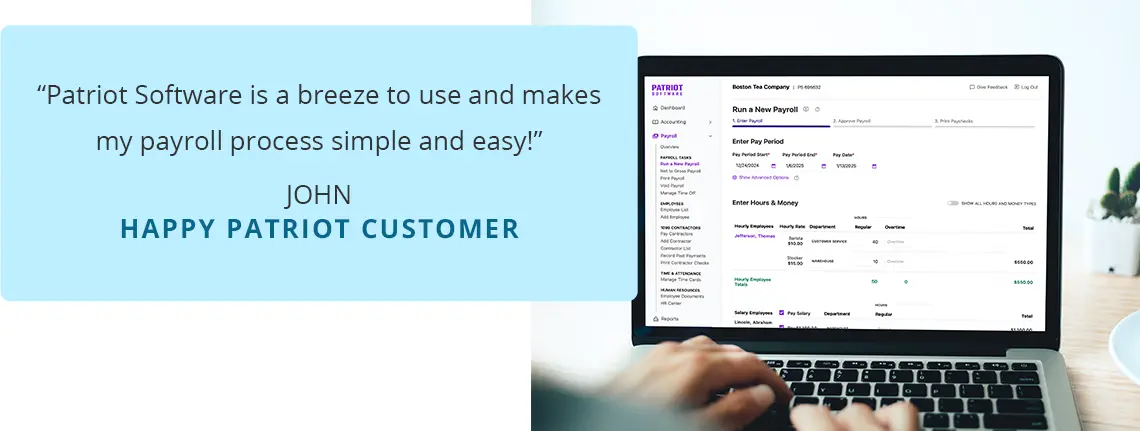When an employee becomes unemployed, they might qualify to receive unemployment benefits. Unemployment benefits are funded by unemployment taxes, which are paid based on employee wages. But who pays unemployment tax? You or your employees?
Types of unemployment taxes
Before you can learn who pays unemployment taxes, you need to know about the two types of unemployment taxes.
Federal unemployment tax (FUTA tax) goes into a fund that pays for the federal government’s oversight of state unemployment insurance programs. For example, a state might not have enough money to pay unemployment benefits during a time of high unemployment. The state can borrow money from the federal government’s unemployment fund.
State unemployment tax (SUTA tax) is collected by your state. Your state uses the funds to pay out unemployment insurance benefits to unemployed workers.
Who pays unemployment tax?
Now that you know about federal and state unemployment taxes, it’s time to find out who pays them.
Who pays FUTA tax?
Only employers pay for FUTA tax. You must pay FUTA tax if:
- You paid $1,500 or more in wages during any calendar quarter during the current or previous year, OR
- You had at least one employee for at least part of a day in any 20 or more different weeks in either the current or previous year
Some employers are exempt from FUTA tax, even if they meet one of the previously listed requirements. Organizations with 501(c)3 status are exempt from FUTA tax. If your hire your parent, spouse, or child who is less than 21 years old, their wages are exempt from FUTA tax.
Who pays SUTA tax?
Typically, only employers pay SUTA tax.
However, employees in three states (Alaska, New Jersey, and Pennsylvania) are subject to state unemployment tax withholding. If you have employees in any of these three states, you will withhold the tax from their wages and remit the tax to the state. Employees will not handle this tax themselves.
States might exempt businesses from paying SUTA tax. For example, a state might exempt nonprofit organizations and businesses with few employees. The exemptions vary by state, so make sure you check your state laws.
How much are unemployment taxes?
Both federal and state unemployment taxes are based on employee wages.
The FUTA tax rate is 6% (0.06). Most employers qualify for a tax credit of 5.4% (0.054). This lowers the FUTA tax rate to 0.6% (0.006).
Some employers might not receive the full FUTA tax credit. This will happen if a state borrows money from the federal government to cover unemployment benefits, but cannot pay the loan back within two years. The state becomes a credit reduction state. When this happens, your FUTA tax credit is reduced, meaning your total FUTA tax liability increases.
You only owe FUTA tax on the first $7,000 per year that you pay each employee. Wages you pay an employee beyond $7,000 per year are not taxed by FUTA.
If you receive the full FUTA tax credit, your maximum FUTA tax liability is $42 per employee for the year ($7,000 x 0.06).
To learn more about FUTA tax and credits, see the Instructions for Form 940 and Schedule A (Form 940).
SUTA taxes do not have a standard rate. Each state sets its own rates.
When you become an employer, you must register for an account with the state unemployment agency. There is often a rate for new employers. The state will send you an updated rate every year. The state will typically base your rate on your industry, experience, and number of unemployment claims made by former employees.
Every state also sets its own wage base. This is the maximum amount of wages per employee per year that you owe SUTA tax on.
You must pay state unemployment taxes to the states where your employees live. If your staff lives in multiple states, you have to pay unemployment taxes to the corresponding states. So, if your business is in Kentucky but you have an employee who commutes from Ohio, you must pay unemployment taxes to Ohio for that employee’s wages.
Paying unemployment taxes
Whenever your FUTA tax liability exceeds $500 during a quarter, you must deposit the tax. The deposit is due by the last day of the month after the quarter ends. You will deposit the tax using an electronic funds transfer (EFT).
If your tax liability is $500 or less during a quarter, you can roll it over to the next quarter. If your liability is $500 or less in the last quarter, you can make a payment by EFT, credit card, or with your Form 940.
You must file Form 940 annually. This form is where you report your FUTA tax liabilities for the year. Form 940 is due by January 31.
Consult state laws to find out when you must pay SUTA tax.
Want an easy way to pay unemployment taxes? Let us do it for you! When you use our Full Service Payroll software, our payroll services handle your federal, state, and local taxes. Start a free trial now.
This article has been updated from its original publication date of October 18, 2017.
This is not intended as legal advice; for more information, please click here.



